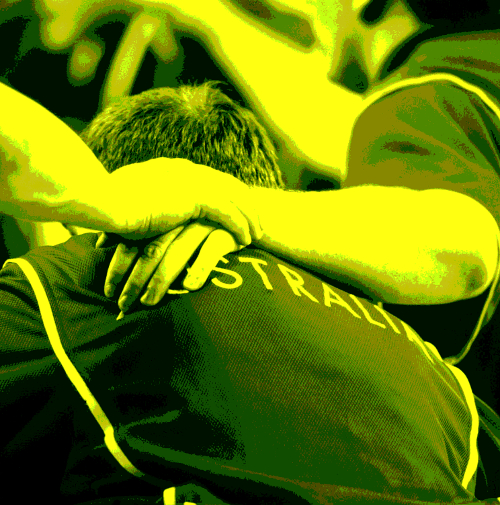Locals taking better view of multicultural country
 University researchers have taken an in-depth look at Australians’ views on cultural diversity, immigration and social cohesion.
University researchers have taken an in-depth look at Australians’ views on cultural diversity, immigration and social cohesion.
It found that Australians are generally quite accepting of others coming to the country, but are concerned about changes impacting on social justice.
The Scanlon Foundation’s 2015 Mapping Social Cohesion report tracks public attitudes on issues including immigration, multiculturalism, discrimination and belonging, and maps our national mood via the Scanlon-Monash Index of Social Cohesion.
One of the report’s author, Professor Andrew Markus, says that in the assessment of Social Justice and Equity in particular, the index sits at its third lowest point since 2007.
“Overall, Australia remains a stable and highly cohesive society,” Professor Markus said.
“It shows experience of discrimination based on ethnic background and religion has lessened from 18 per cent to 15 per cent since last year, and there continues to be a high level of acceptance of immigration and cultural diversity.
“Most people [86 per cent] agree that multiculturalism has been good for Australia – almost the same proportion as in 2013 and 2014.
“However, in the domain of social justice, there has been a decline in satisfaction since the election of the Coalition government.
“This reflects concern over lack of support for those on low incomes, the increasing gap between rich and poor, and continuing low trust in government.”
Trust in government has been down since 2009. Just 16 per cent of respondents agreed that the system of government we have in Australia works fine as it is, and only 30 per cent agree that government can be trusted to do the right thing for Australian people ‘almost always’ or ‘most of the time’.
Social issues including childcare, family breakdown and drug use also ranked higher. The proportion of respondents who see this as the top issue facing Australia has doubled since 2012.
Concern over the affordability of housing also registered an increase.
The level of concern about immigration remains at the lowest point recorded by the Scanlon Foundation surveys – just 35 per cent of respondents consider that the intake is too high.
Since 2014, there has been little change in attitudes toward asylum seekers arriving by boat – just one in four people consider that they should be eligible for permanent settlement in Australia.
In response to questions on integration, two thirds of respondents agreed that Australians should do more to learn about the customs and heritage of immigrants, while a similar proportion agreed that immigrants should change their behaviour to be more like Australians.
“The survey found considerable support for the idea that both people born in Australia and immigrants needed to adapt to life in a changing Australia,” Professor Markus says.
More key findings by State and region:
- Residents in regional Australia have lower support for immigration, cultural diversity and the resettlement of asylum seekers arriving by boat in Australia than respondents living in capital cities.
- Residents in regional areas are more likely to consider Australia’s immigration intake to be too high with 44 per cent of people holding this view, compared to 36 per cent in capital cities - but in both areas, this is a minority view.
- Residents in Melbourne and Canberra have the highest level of support for cultural diversity, compared with those in Brisbane and Perth who are most negative.
- The lowest level of trust in the federal government was in Victoria, the highest level in Queensland and Western Australia.








 Print
Print